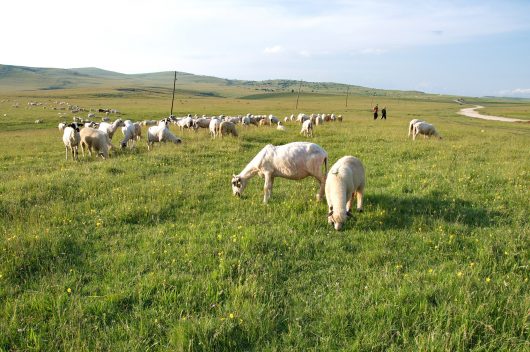Tech Solutions for Sustainable Agriculture in Serbia
 A Serbian institution called BioSense is at the forefront of innovative agricultural solutions research to practice more sustainable agriculture in Serbia. Global food security is one of the main issues of concern in European Union policymaking. Research has concluded that global food production must increase by 50 percent in the next 20 years. That increase will have to come from the intensification of current agricultural practices, so farmers must adapt to make their farms more productive.
A Serbian institution called BioSense is at the forefront of innovative agricultural solutions research to practice more sustainable agriculture in Serbia. Global food security is one of the main issues of concern in European Union policymaking. Research has concluded that global food production must increase by 50 percent in the next 20 years. That increase will have to come from the intensification of current agricultural practices, so farmers must adapt to make their farms more productive.
The BioSense Centre at the University of Novi Sad in Serbia has partnered with the Foundation for Agricultural Research (DLO) at the University of Wageningen in the Netherlands, the leading research institute for applied research in agriculture and food security in Europe. BioSense, the regional leader in sustainable agriculture and advanced IT solutions research, is working with the DLO to increase food security in Serbia through the integration of advanced IT solutions into agricultural practices.
BioSense has pioneered a new trend in sustainable agriculture in Serbia called precision agriculture, which utilizes Wireless Sensor Networks (WSN) and Remote Sensing to acquire detailed crop data for analysis. The WSN is made up of tens or hundreds of sensors distributed appropriately throughout crop fields. The sensors communicate through wireless signals and acquire data on a variety of factors, including:
- Humidity
- Soil temperature
- Illumination
- Plant diameter
- Growth rate
WSN make crop monitoring much more efficient and accurate. This advanced technological solution to precision agriculture can help farmers pinpoint and address problems or weaknesses within their fields. This will enable farmers to produce more food with fewer resources and inputs.
The integration of agriculture and advanced IT solutions is an important potential source of economic growth. Agriculture is one of the biggest industries in Serbia, making up almost 10 percent of its total GDP. Serbia has ideal conditions for agricultural production, with fertile soil, good climatic conditions, experienced farmers, good infrastructure and a rich farming tradition.
Serbia’s current farm structure is dominated by small farms. The country’s potential accession to the European Union may threaten the livelihood of small farmers and “farming heritage” as larger foreign competitors move into the market. Farmers must be willing and able to utilize the kind of advanced IT agricultural solutions developed by institutions like BioSense in order to increase their productivity to keep up with new competitors.
Sustainable agriculture in Serbia will be driven by research-based innovations in advanced IT solutions. BioSense’s strategies like precision agriculture and WSN would not only benefit Serbian farmers striving to drive up productivity in a more competitive agricultural market, but would contribute to the global struggle for food security.
– Sydney Lacey
Photo: Wikimedia Commons
